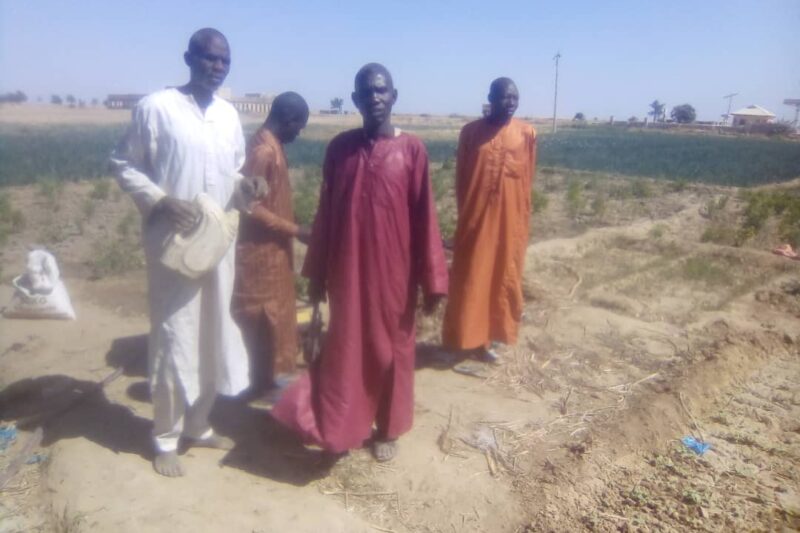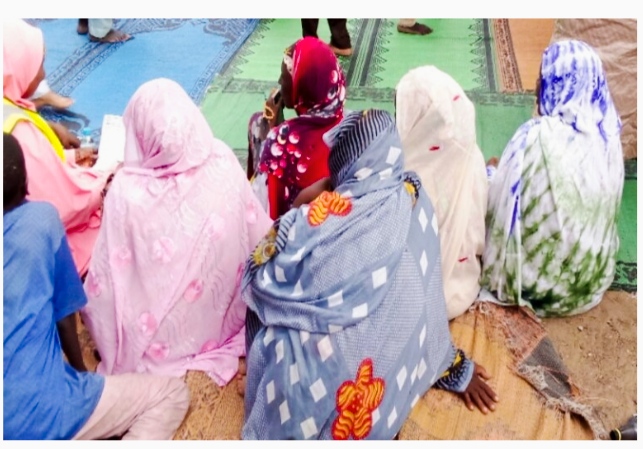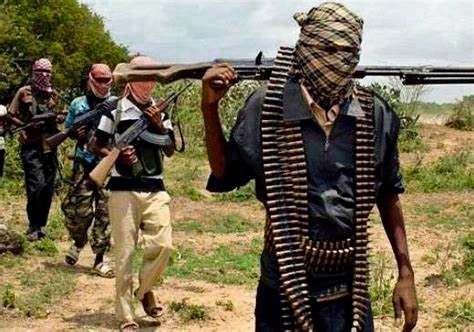Farmers and wood collectors in Borno State have had a hard year – with many being abducted for ransom or killed – but they hope the new year will bring happier beginnings
The year 2023 is over – it was a turbulent year for many, particularly the poor and indigent in the northeast of Nigeria, and there is an almost palpable sigh of relief that the year is done and dusted, with citizens hoping and praying that 2024 will be better.
Poverty spiralled in 2023. When the new president, Bola Tinubu, took office at the end of May, he announced that the fuel subsidy was “gone”. The cost of most commodities was already high because of the escalating exchange rate but his announcement resulted in the price of goods, particularly fuel and food, skyrocketing.
Tinubu quickly told his people the removal of the subsidy would take place only on July 1. But the message was out there and prices of everything escalated to previously unknown heights. The already elevated interest rate reached an all-time high of 18.75% in July.
The cost of living was too much for the poor and indigent. Instead of three square meals a day, many could barely afford to feed their families one meal a day. They went to bed with empty bellies. Internally displaced persons took perhaps the hardest knock.
It was so severe that Tinubu declared a state of emergency in July to tackle the rising food prices.
But for most in the northeast of the country, nothing improved. In fact, life just became harder.
Although the insurgency seemed to have slowed down and people in Borno State were living in relative peace, insecurity began to increase again in the latter half of 2023.
Attacks on farmers were particularly prevalent, with hundreds being killed or abducted for ransom money. Herder-farmer clashes increased and rural banditry was common.
Kabir Adamu, the chief executive of Beacon Consulting, a security risk management and intelligence organisation, told the BBC on December 22 that more than 8,000 Nigerian civilians were killed and 5,000 abducted from January to December 2023.
One of the more notable killings was that of the deaths of at least 160 civilians who were gathered at a religious celebration and were bombed by a Nigerian military drone in Kaduna State in northwest Nigeria on December 3.
Kachallah Grema Kyari, a security observer, told RNI that he believed the official number of citizens killed in Nigeria in 2023 could be far higher than the disclosed figure.
Kyari said: “Don’t forget that the number given by Adamu was a conservative figure and based on media reports. This is the recorded number; you need to understand that there are many deaths that were not recorded. Many people were killed in remote and hard-to-reach areas where there is no telephone network and no easy access.”
A short while after Adamu’s interview, he said, another 198 people were killed by heavily armed groups believed to be Fulani herdsmen in the Christian-dominated local government areas of Mangu, Barkin Ladi and Bokkos in Plateau State in central Nigeria on Christmas Eve and Christmas Day.
Residents of Borno State had their own tales to tell about insecurity in 2023.
Ibrahim Kwuri said: “The security situation in Dikwa is not always favourable. We can’t trek for more than 2km or go near the surrounding bush areas because insurgents have killed a lot of people there, particularly in the wet season when farmers were cultivating their lands. There was little progress made security-wise last year.
“The government should try to do something about insecurity because at present the bush is inaccessible for wood collectors and farmers because they fear they will be attacked. Things have become extremely difficult because they can’t grow produce to eat or to sell. So many are hungry and they cannot make a living.”
Mal Usman, from Gadai in the Nganzai Local Government Area, said: “The insurgents usually tax us and we have no choice but to pay. If we don’t pay, they chase us out of the village.
“Many famers were abducted by insurgents last year; they mostly ask for ransom money and if it’s not paid they kill the abducted person.”
Baa Buji, a farmer from the Monguno Local Government Area, told RNI that where he lives there had been no incidents of insecurity.
“So far, we have not had a problem. We can travel on our roads safely. A while back, the roads used to be very dangerous. Often we were told about someone being abducted almost every day. But it is calm now. I hope it will stay that way.”
Alhaji Umara, a farmer taking refuge in Dikwa, said: “Insurgents make life difficult for us. We cannot travel outside the area without military clearance or an escort. Many of us, including me, lost our entire farm produce to insurgents. It was time for cultivation and they told us not to come to the farm again. Some refused to obey and they were killed.”
The Nigerian Armed Forces said they recorded “significant successes” in the fight against insurgents and armed banditry across the country last year.
Major-General Buba Edward, the director of defence media operations, said: “We recorded massive successes in 2023. We neutralised 6,886 terrorists and other criminal elements, 6,970 suspects were apprehended and we rescued 4,488 abducted individuals.”
Kyari said although analysts had seen the report by military, it was difficult to comment.
“We want to know the process they followed to see how they got to this conclusion. It is not just the result but also the process that matters.
“In the past, during the peak of the insurgency in the northeast, the defence headquarters gave us a daily news briefing on the situation in the country. But they are no longer doing this.
“In this report they claim to have neutralised 6,970 ‘terrorists’. Don’t forget that these people are citizens of Nigeria too. What do you think about the safety of lives and properties in a country where the military killed almost 7,000 insurgents or bandits and criminals in just one year? It makes you wonder just how many more are still out there. There is much that needs to be done.
“As we enter 2024, there is need for the military to re-strategise and come up with new ideas to tackle insecurity across the country. They need to build trust and invest hugely in the modern technology sector. They need to present quarterly not only annual reports. The quarterly reports need to be factual and transparent. Then, at the end of the year, they should put the quarterly reports together into one document and present the findings to the people of Nigeria.”
AYSHA MUSTPHA KOLOMI









